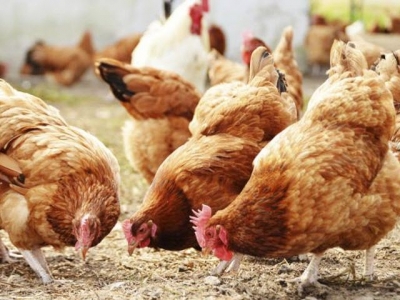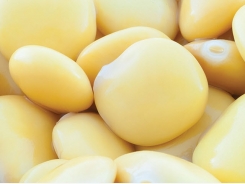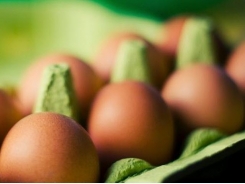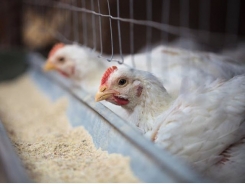Enriched environments may aid chickens response to stress

Chickens in both simple and enriched environments were equally optimistic before being exposed to stress. Photo: monticello/iStock/Thinkstock
Chickens reared in an environment that they perceive as more diverse and manageable retain an optimistic view of life and cope with stress better than chickens that were reared in more sterile surroundings, according to a new study published in Scientific Reports.
A team led by researchers from Linköping University in Sweden measured how stress affects optimism in chickens.
First, the researchers had to determine how to measure optimism in chickens. Young chicks were taught to distinguish between black and white -- where one of the colors contained a reward -- through a process known as associative learning. The chickens were then given a new challenge and presented with gray symbols intermediate between the rewarded and the unrewarded colors.
The researchers measured the response of the birds toward the gray color; chickens that reacted to gray in the same manner as they had reacted to the rewarded color were considered to be optimistic, while chickens that reacted to gray similarly to how they responded to the unrewarded color were considered less optimistic.
The researchers also measured levels of dopamine -- an important signaling substance -- in the brains of these chickens. In people, dopamine is linked to well-being and optimism. The results showed that chickens assessed as being optimistic had higher levels of dopamine.
“In this study, we wanted to investigate how stress influences optimism and whether a more complex environment during development can buffer and counteract negative effects of stress,” said Hanne Løvlie, associate professor in the Linköping University department of physics, chemistry and biology who has led the study.
In the study, the researchers compared chickens that grew up in rather sterile surroundings to those that had grown up in a more complex and stimulating environment.
“One interesting result was that chickens in both types of environments were equally optimistic before being exposed to stress,” Løvlie said.
In order to expose the chickens to stress, the researchers created an unpredictable environment for them by moving things around in their pens and exposing them to irregular light and noise intervals. The animals were exposed to such stressors for a limited period.
It was only when the chickens were exposed to stress that differences appeared: Individuals that had lived in a simpler environment lost their optimistic attitude after being exposed to stress, while chickens in a more complex environment retained their optimistic attitude and, thus, seemed to be better able to cope with stress, the researchers reported.
“If a chicken can hide under something or fly up and perch somewhere, it can manage a stressful situation better. We believe that the possibility of controlling the situation better resulted in these individuals being able to maintain optimism, even after a period with increased stress,” added Josefina Zidar, who holds a doctorate in ethology from Linköping University.
Since the difference between the groups arose only after the animals had been exposed to additional stress, it suggests that repeated stress can reduce optimism.
“It has previously been shown that additive stress can have unfortunate consequences, and this should be considered in animal husbandry to provide better welfare,” Zidar said.
The study was carried out in collaboration with researchers at the Swedish University of Agricultural Sciences, Uppsala University in Sweden and Neiker-Tecnalia in Spain. The research received financial support from Formas.
Related news
Tools

Phối trộn thức ăn chăn nuôi

Pha dung dịch thủy canh

Định mức cho tôm ăn

Phối trộn phân bón NPK

Xác định tỷ lệ tôm sống

Chuyển đổi đơn vị phân bón

Xác định công suất sục khí

Chuyển đổi đơn vị tôm

Tính diện tích nhà kính

Tính thể tích ao




 Using pulses as alternative ingredients in poultry feed
Using pulses as alternative ingredients in poultry feed  Why adding enzymes to poultry diets improves digestion
Why adding enzymes to poultry diets improves digestion